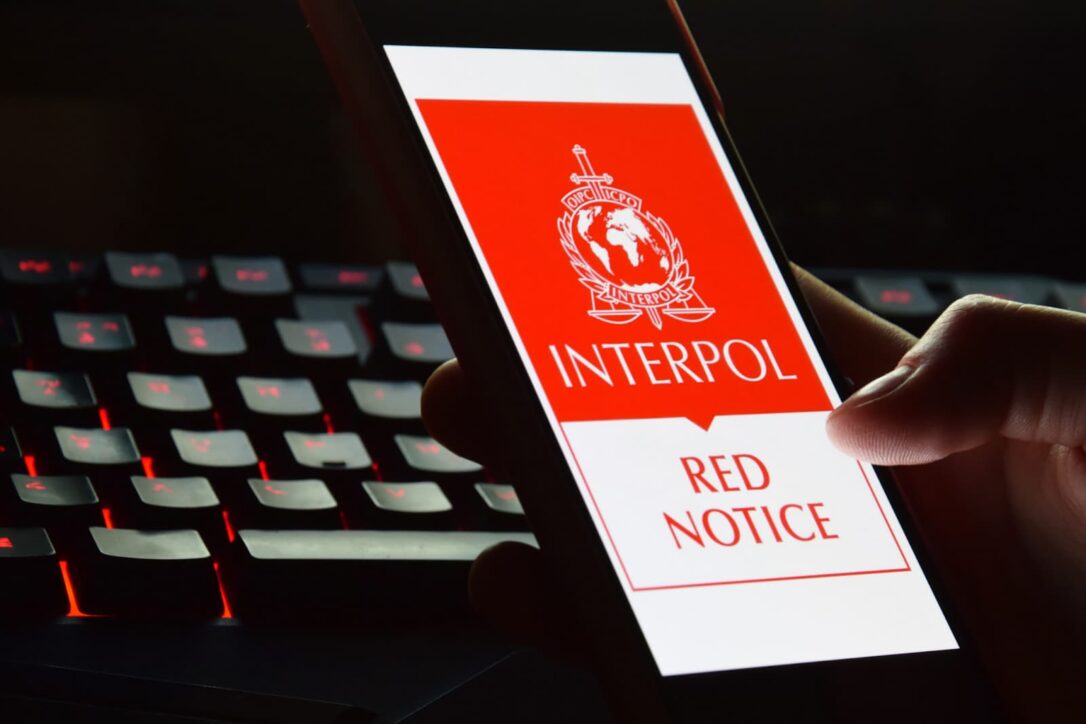Interpol brings together law enforcement agencies from 195 countries to fight international crime. One of its instruments of greatest interest is the red notice. This mechanism serves to coordinate between countries to help track down criminal suspects or defendants who may be hiding abroad. Let’s take a look at what an Interpol red notice is, the implications of having one, and how an Interpol red notice lawyer can help you.
What is an Interpol Red Notice?
An Interpol Red Notice is an official international request to trace a person. It is a notification to law enforcement agencies of all INTERPOL member countries. It informs that a suspect must be detained for extradition to the country that is seeking him or her. It is also referred to as an international arrest warrant. However, from the legal point of view, it is not so. Each state independently decides how to respond to such a notice within the framework of its legislation.
The notification contains the suspect’s identity, a description of the alleged crime, the case number and the legal basis on which the request is based. In addition, in some cases, photographs or additional documents are added. The main purpose is to ensure that the suspect is temporarily detained until the issue of extradition is resolved.
It should also be remembered that the presence of a red notice does not necessarily mean guilt. Some countries use this mechanism to prosecute opposition members, journalists and others who pose a threat to the authorities. Thus, a red notice can be not only an instrument of justice, but also a means of political pressure.
Legal Implications of a Red Notice
The consequences of having a red notice can be serious and multifaceted. First, it significantly restricts freedom of movement. A person subject to a red notice can be detained at any airport, at the border or even within the country, if local authorities deem it necessary.

Secondly, such a notice can significantly complicate daily life. Banks and financial institutions, upon learning of a red notice, often block accounts or refuse to conduct transactions. This allows them to avoid potential legal risks. Employers, upon learning of such a situation, may terminate an employment contract for fear of a negative impact on the company’s reputation.
In addition, a red notice may cause the loss of professional licenses or other documents necessary for work. A person finds himself in a difficult situation where, even without proof of guilt, he faces a number of restrictions that seriously affect his life.
How to Challenge a Red Notice
It is possible to challenge a red notice. However, the process requires knowledge of international law and careful consideration. The main mechanism for challenging is to appeal to the Interpol Commission for Control of Files (CCF). This independent body reviews complaints about red notices and decides on their legality.
To file a complaint, it must be proven that the notice violates Interpol rules. One of the most common grounds is the political nature of the harassment. For example, if the notification is related to a person’s political activities rather than an actual crime, it can be revoked. Violations of basic human rights, insufficient evidence, or failure to meet international standards may also be cited.
The process of filing a complaint involves collecting and presenting evidence. This can be court decisions, documents on persecution, testimonies of independent organizations or the media. It is very important that the complainant properly substantiate his/her position, as the Commission makes its decision based on the facts and arguments presented.
Given the complexity of the procedure, it is strongly recommended to seek the assistance of lawyers with experience of working with Interpol. They will help prepare a high-quality appeal and provide advice at every stage.
The Role of Interpol in Red Notices
Interpol’s primary function is to coordinate international efforts to combat crime, but its functions are limited in scope. The organization does not have its own law enforcement powers, such as arrest or investigation. Its job is to provide a platform for information sharing between countries.
The process of issuing a red notice begins with a request from one of the member countries. Interpol checks the request against its Charter. It prohibits the use of the organization’s tools to prosecute on political, military, religious or racial grounds. If the notice does not violate the rules, it is published and made available to all member countries.
However, Interpol is often under pressure, especially in cases involving political figures or controversial criminal cases. The organization is constantly improving its procedures to minimize abuses and protect people’s rights. For example, new mechanisms for screening requests and reviewing notifications have been introduced in recent years.
Red notices remain one of Interpol’s key tools, but their use requires careful monitoring. They can be a powerful tool in the fight against international crime, but they can also be used for unlawful prosecution. Knowing one’s rights and knowing how to protect oneself from abuse become important factors for all who may encounter this mechanism.